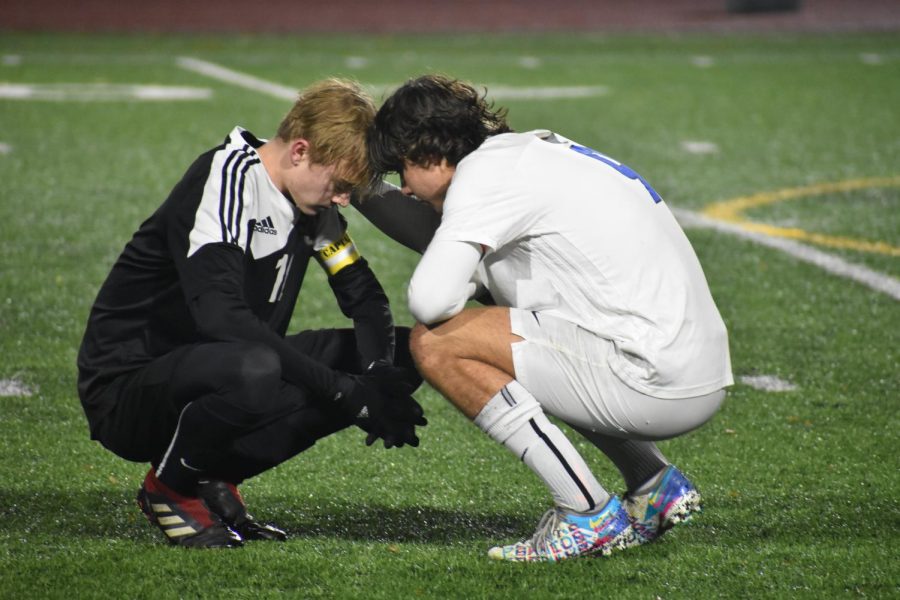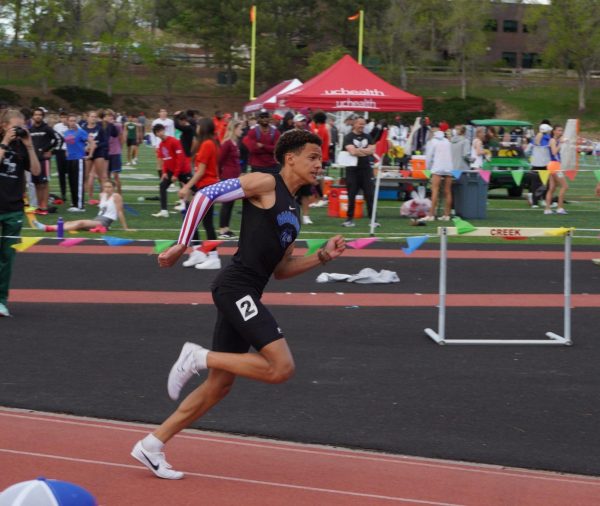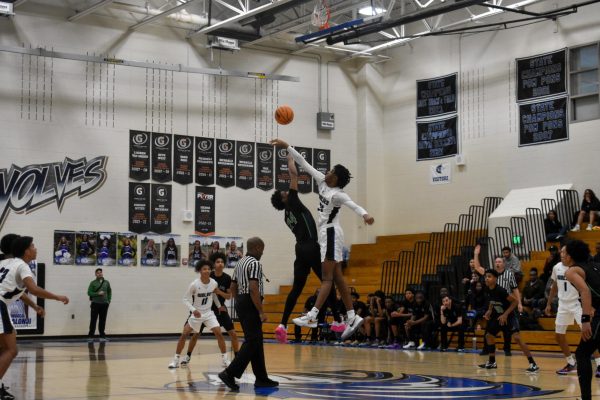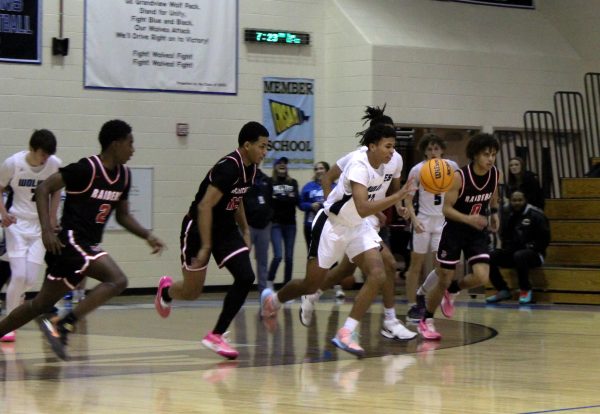Mental Barriers: An Everyday Battle for Student-Athletes
Varsity soccer captain Charlie Lucero (right) consoling a Silver Creek player following a playoff game.
Photo Courtesy of: Lael Temple
You have one shot to qualify for the state championships.
This is your one chance. Your only chance. Your last chance.
For months on end, you’ve trained persistently. No turning back now.
You can’t ignore the gut-wrenching emotions, the voices telling you exactly how and when you’re going to fail. Especially when you see the size of that crowd. Oh God, the number of people watching you…
Messing up is simply not an option. You make just one mistake, and you fail not only yourself, but your friends, your family, your coaches, and your teammates. You become defined by that failure until the end of time, it feels like.
Sure, people tell you there’s no need to get all worked up. It’s just a sport, they say, but no, you can’t. You can’t fail.
While this mindset certainly sounds self-destructive, it is what athletes all around the world experience on a weekly or even daily basis. Sports are more than just games; they teach valuable lessons, offer a means of personal expression, and provide opportunities both financially and academically.
“I think one of the [lessons taught] is leadership. You know, being a leader on the field,” said boys’ soccer head coach Brian Wood. “I think it [also] teaches time management.”
While athletics do certainly have their benefits, it should be noted that student-athletes also have much more to handle when compared to their non-athletic peers. With fall sports being in full swing, everyone signing up will have loads to handle.
“We had practice every day of the week or [even] a game sometimes, and it was a lot of work,” said freshman softball player Maya Sprague. “Very time-consuming and overwhelming.”
Volleyball player Dorie Mittleman had similar thoughts.
“I have practice on weekends, so I can’t hang out with friends,” said Mittleman. “[I] do my homework before practice and when I get home from practice [I] study.”
Athletes deserve to be able to love their sport, not just for the benefits it brings but also for the joy and social experiences they receive from it.
“It was fun,” said Mittleman. “I got to meet a lot of new players and play different schools.”
Sprague noted her nervousness during her first days in school, but also how softball had connected her to several people who shared her interests and passions.
Unfortunately, the mental and emotional well-being of athletes often goes unrecognized with emphasis on physical prosperity.
“I never really cared about it until I had school and softball, and it really did impact me,” said Sprague. “I had to take a break sometimes just so that I could be alone, or take time for myself so that I wasn’t always so stressed out or miserable.”
Student-athletes face many of the same difficulties that their non-athletic peers do; however, they must also find ways to cope with other problems unique to their sport. Many don’t recognize how important mental health is in regards to performance in both sports and academics.
“Players have to be mentally there to be able to concentrate, do well in the game, and to focus everyday at practice,” said Wood. “If they have other things going on in their lives, we have to figure out ways to work that out first before they can go be at a top-performing level playing.”
Even those who understand the significance of mental health tend to struggle in regards to finding support.
“I actually don’t know,” said Sprague when asked if she was aware of who in the school might provide support. “I feel like maybe the athletic director, counselors, but I haven’t really gone to see.”
Mittleman similarly noted that she didn’t know. This is especially the case for freshmen and sophomores new to the high school experience.
“[The students] haven’t developed those relationships yet with coaches, and they haven’t been in a high school setting,” said Wood. “I think they, especially our younger players, have a lot of issues with that.”
Expressing concerns regarding problems or emotions is in no way a form of weakness; it simply shows that you care about yourself and your future. A support network can and will lead to greater overall health. Grandview has numerous resources all throughout the school who are always willing to talk and help.
“As coaches, we do go through training here every year,” said Wood. “Almost every coach that we’ve had in our soccer program here is a teacher in the building. We work with students on a daily basis, so [we can figure out] ways to help those students.”
Even without the help of a counselor, there are several ways to destress, whether this be going for a walk, riding a bike, seeing a movie, or hanging out with friends. Everyone’s means of tranquility are unique, so simply doing something personally fun and relaxing in order to alleviate stress is always helpful.
“I usually would take a break from homework and then just relax,” said Sprague. “I’d listen to music and just let go of everything [troubling me].”
If relaxation techniques don’t seem to help, talking to a trusted friend or professional can always be useful. The mental health team can be communicated with online; their contact information is found here along with other district resources.
“We’ve got a great mental health team,” said Wood. “We usually refer [the students] to them because they’re the ones who are trained and experienced in that [area].”
As the athletic community grows, so does the anxiety and worry in players resulting from external pressure. A common belief is that pushing through pain without breaks is the ‘correct’ way to go about situations; however, this attitude simply slows and damages growth, as it prevents individuals from resting their mind and body appropriately.
“If you really do need to take a break, do it. By all means, do it.” said Sprague. “Because if you don’t, then it’s just gonna catch up to you.”
In no way whatsoever is it weak or disappointing to others for you to simply permit yourself and your mind to be alleviated of stress through periods of relaxation. Communication, an understanding of your limits, and allowing yourself to rest when appropriate are all very beneficial to growth as both a player and a student, especially as levels of competition are reached that have a greater impact regarding responsibilities.
“You [can easily] get into this habit of being stressed out and not able to truly take a break,” said Sprague. “Just take time. People will understand.”








![Bill HB24-1448: What Does It Mean? [OPINION]](https://ghschronicle.com/wp-content/uploads/2024/05/Hayne-Photo-1-600x450.png)
![Colorado Rockies: No Trophy in Sight [Opinions]](https://ghschronicle.com/wp-content/uploads/2024/05/IMG_3018-2-600x450.jpg)



![Freshman 101: Great Intentions; Repetitive Practices [Opinions]](https://ghschronicle.com/wp-content/uploads/2024/05/Screen-Shot-2024-05-02-at-1.58.44-PM-600x492.png)


